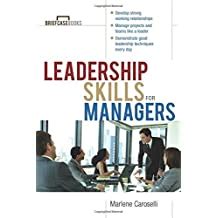A Quote by Ovid
In the make-up of human beings, intelligence counts for more than our hands, and that is our true strength.
Quote Topics
Related Quotes
Artists use frauds to make human beings seem more wonderful than they really are. Dancers show us human beings who move much more gracefully than human beings really move. Films and books and plays show us people talking much more entertainingly than people really talk, make paltry human enterprises seem important. Singers and musicians show us human beings making sounds far more lovely than human beings really make. Architects give us temples in which something marvelous is obviously going on. Actually, practically nothing is going on.
Even in a jungle, lovely flowers will spring up here and there, such being the fecundity of nature, and however badly our pastors and masters run our society, however much they pull to pieces that which they claim to be keeping intact, nature remains fecund, human beings are born with human traits, sometimes human strength outweighs human weakness, and human grace shows itself amid human ugliness. ‘In the bloodiest times,’ as our play has it, ‘there are kind people.’
The human heart is the first home of democracy. It is where we embrace our questions: Can we be equitable? Can we be generous? Can we listen with our whole beings, not just our minds, and offer our attention rather than our opinion? And do we have enough resolve in our hearts to act courageously, relentlessly, without giving up, trusting our fellow citizens to join us in our determined pursuit-a living democracy?
There is no doubt about it: we are judged by our language as much as (perhaps more than) we are judged by our appearance, our choice of associates, our behavior. Language communicates so much more than ideas; it reveals our intelligence, our knowledge of a topic, our creativity, our ability to think, our self-confidence, et cetera.
Everything that we think God has in his mind necessarily proceeds from our own mind; it is what we imagine to be in God's mind, and it is really difficult for human intelligence to guess at a divine intelligence. What we usually end up with by this sort of reasoning is to make God the color-sergeant of our army and to make Him as chauvinistic as ourselves.
Having been brought up among the biologists and having followed various debates about ways to improve the human template and other debates about the true nature of our nature, I began seriously to wonder: What if? We hold in our hands a tool that is more powerful - for good or ill - than any we have wielded before.
Once you develop confidence in your own ability, you'll be able to make a real contribution to creating a better world. Self-confidence is very important. Not in the sense of blind pride, but as a realistic awareness of what you can do. As human beings we can transform ourselves by our good qualities and reducing our faults. Our intelligence enables us to judge what is good from what is harmful.
I think the problem is these basic sort of human values from our - from the beginning, from birth, are not sort of properly nurtured. So then our mind, our brain, through education and also difference of experiences, that eventually, these basic values or what are called dominant, not have the catching up our intelligence, experience growth, that also should grow. Then our life become more human.




































